‘Nobody wanted to leave’: Lancashire’s leaders hail success of Westminster trip, but say it’s now over to the government for a devolution decision
and live on Freeview channel 276
That was the conclusion of Chorley Council leader Alistair Bradley, who was part of a 200-strong delegation that saw senior councillors and the county’s MPs joined by representatives from business and the education, voluntary and faith sectors for the launch of the “Lancashire 2050” plan.
The gathering, hosted by Chorley MP and Commons Speaker Sir Lindsay Hoyle, was held to mark the publication of a document that lays out eight priority areas over which the county’s 15 council leaders have pledged to co-operate - including housing, transport and skills.
Advertisement
Hide AdAdvertisement
Hide AdHowever, the vision for Lancashire’s future was also seen as the perfect backdrop for a renewed push to try to persuade the government to send more powers and cash the county’s way as part of a long-awaited devolution settlement.
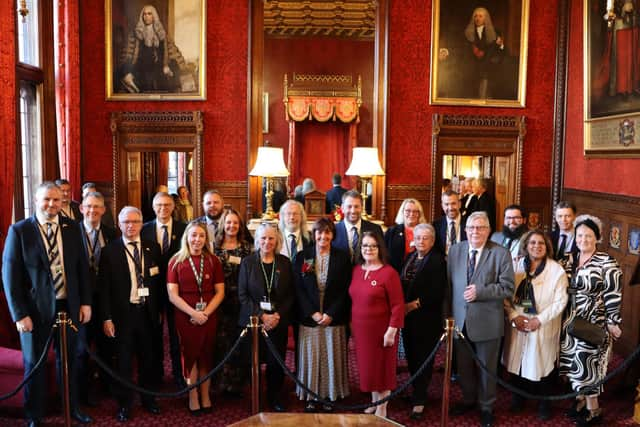

Lancashire’s 15 council leaders earlier this year signed up to the basis on which they would pursue one of the bespoke “county deals” that the then Boris Johnson government had put on the table for areas that had struggled to agree over previous requirements for an elected mayor and a reduced number of councils - both of which have proved major stumbling blocks for the region.
Cllr Bradley told the Local Democracy Reporting Service (LDRS) that the ball was now firmly in the government's court as he appealed to ministers to decide how they would help Lancashire fulfil its plan - and its potential.
“All we can do is make the case for Lancashire, which I think we did [at Westminster]. We were a good advert for the county and it was a good opportunity to display some unity - it felt like a significant landmark.
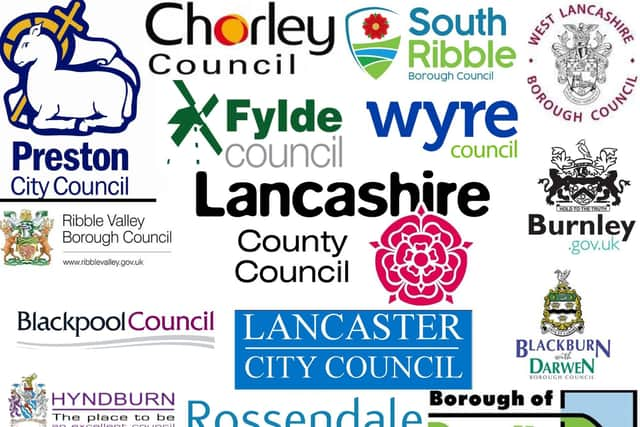

Advertisement
Hide AdAdvertisement
Hide Ad“But a conversation needs two sides and, to my mind, [the government] needs to be pushing Lancashire up the pecking order, because we’re a large and important county - and we self-evidently are not in the position that our neighbours are in Liverpool, Greater Manchester and North Yorkshire.
“I think the government - if they’re serious about levelling up and northern devolution - need to be talking to Lancashire sooner rather than later,” said Cllr Bradley, who was deputy chair of the now defunct shadow Lancashire combined authority, the county’s first pitch for devolved power when that group was established back in 2015.
Lancashire County Council leader Phillippa Williamson said that she hoped that the Westminster event would serve not only to secure Lancashire a place on the list of locations with which the government would hold devolution discussions - but also get the county a better hearing when that day finally comes.
Lancashire is not amongst the nine areas that the government announced were next in line for devolution when it published its “levelling up “ white paper in February.
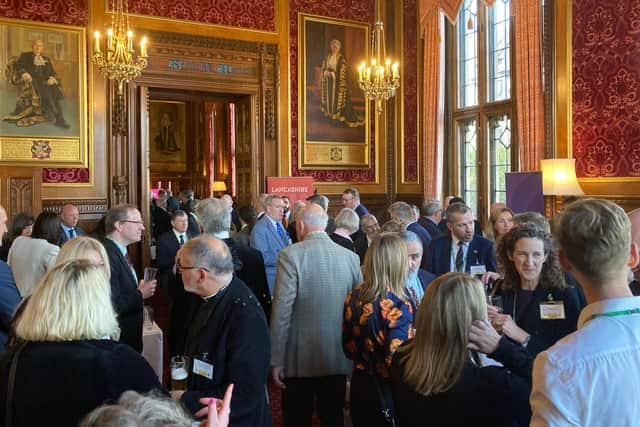

Advertisement
Hide AdAdvertisement
Hide AdNeither is it yet clear precisely the form in which a Rishi Sunak’s administration will pursue the devolution agenda - although it did announce mayoral deals for three of the nine white paper locations during the recent autumn statement, an offer which recent history suggests would be unlikely to be met with a universally warm welcome if it were to be made to Lancashire.
However, County Clllr Williamson told the LDRS that - whatever the future holds - she was confident that there may be more immediate benefits to Lancashire’s raised profile when it comes to any Whitehall initiatives that might be on the horizon.
“We would like to be further [ahead in] a conversation around any kind of devolution deal, but, equally, we want [the government] to be in a position to think, ‘We want to do X or Y [and] Lancashire are clearly up for these things, have the evidence and can move quickly - so let’s have a conversation with them’.
“The key for us now, having had the successful launch [of Lancashire 2050], is to take it forward…developing the plan and being ready to have those conversations, which will come - you just can't predict when.
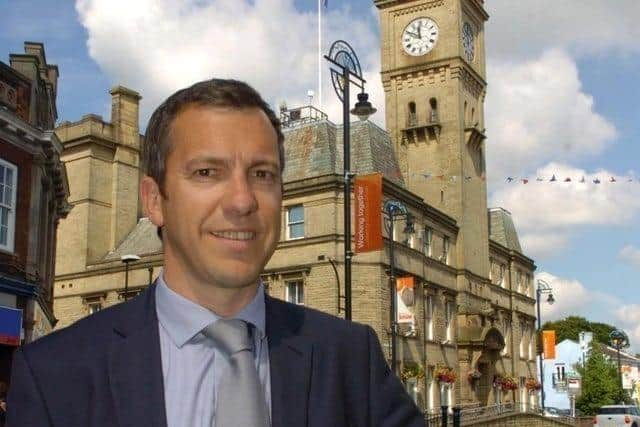

Advertisement
Hide AdAdvertisement
Hide Ad“But we can't be in a position where we’re on the back foot,” County Cllr Williamson warned.
The LDRS understands that the gathering at Westminster was attended by junior ministers and senior civil servants - the people who, the County Hall leader says, “do a lot of the legwork” when it comes to the kind of discussions that Lancashire hopes to have about devolution
They were all treated to canapés made from county produce, as well as other local delicacies - along with displays from some of the county’s most innovative businesses.
Spread across three of the Speaker’s state rooms - and also staged as a celebration of Lancashire Day - the event went down so well that many of the guests needed a little persuading to leave when it was time to disperse, something which County Cllr Williamson took as a good sign.
Advertisement
Hide AdAdvertisement
Hide Ad“People could speak to businesses, groups and individuals who were actually living in and doing well in Lancashire.
“It was really important that we were on the [government's] doorstep, collectively speaking as one group with one message and being seen to reach out to them - making it easy to have those initial conversations and make those contacts and networks.
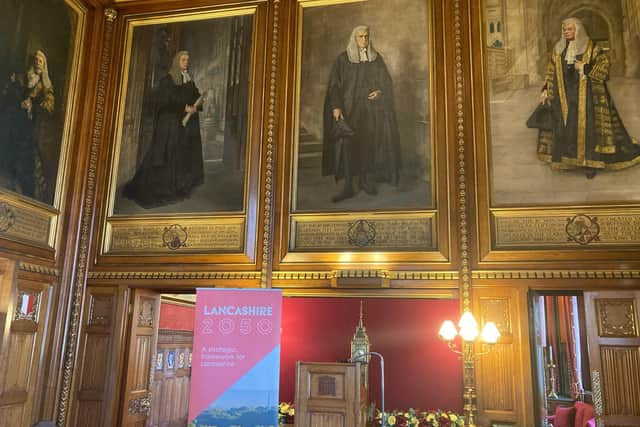

“Sir Lindsay did a speech and so did I - and that’s usually the moment at these kind of events where people wander away. But by the end, [staff from] the Speakers’ office were ushering people out.
“There were so many people still there and those conversations were still going - and that, to me, was a sign of success,” County Cllr Williamson said.
SO WHAT’S NEXT?
Advertisement
Hide AdAdvertisement
Hide AdLancashire’s leaders have been keen to stress that their collective Lancashire 2050 vision is one that they intend to pursue regardless of whether its ambitions can be hastened and deepened by a devolution deal.
All 15 politicians at the top of the county, district and unitary councils have met regularly for several years and while the focus is often on high-level hopes for the future, County Cllr Williamson says that the closer relationship that the authorities have forged more recently means that they also consider “parochial” issues at their now monthly catch-ups - and how they can work together to tackle common problems.
That approach has meant that the recruitment challenges currently facing all local authorities have recently been on the agenda.
“We have agreed that we will try and think about it in a creative way…to help each other and to deal with it as a collective group. That’s just one very practical [example] - we don’t need anyone’s help to do that, it's all in our hands.
Advertisement
Hide AdAdvertisement
Hide Ad“There are lots of other [areas] where we think we can do things together without going through the pain of local government reform - and [which] actually just makes things better for us and therefore better for residents.”
As for the Lancashire 2050 framework itself, County Cllr Williamson is keen to guard against the danger of it gathering dust.
“The willingness of all of our partners and businesses to support us [in its launch] has been quite overwhelming, I could never have imagined it. We all want it to work, because we can see the benefits it can bring.
“We’ve got a lot of support and goodwill…but we need to make sure that we’re engaging with all of those people that are supporting us so that they can see that it’s actually happening and are feeling that they’re going to be part of it.”
LANCASHIRE’S TOP PRIORITIES
Advertisement
Hide AdAdvertisement
Hide AdThe Lancashire 2050 framework sets out the county’s collective long-term aims:
Economic prosperity
***To realise the growth potential in our existing and emerging key sectors, particularly low-carbon and renewables, and to attract increased investment.
***To ensure Lancashire has an outward-looking and connected economy that works for all.
***To build a pipeline of strategic development sites and infrastructure opportunities.
Advertisement
Hide AdAdvertisement
Hide Ad***To maximise the economic benefits of Lancashire’s tourism offer and promote a diverse place with urban, coastal and rural economies.
***To encourage business as good employers.
Transport and infrastructure
***To connect the economic clusters and sectors of Lancashire and tackle isolation.
***To take a place-focused approach to transport and infrastructure, which ensures that provision is designed to allow places to flourish.
***To reduce the need to travel by providing fast reliable access to digital technology.
Advertisement
Hide AdAdvertisement
Hide Ad***To reduce carbon emissions in support of a net zero county.
Early years and education
***To improve attainment for all children across the region, particularly in literacy and numeracy.
***To ensure vulnerable families get the help they need for their children to progress and achieve.
***To support vulnerable young people and families by removing barriers to learning and helping them access opportunity.
Advertisement
Hide AdAdvertisement
Hide Ad***To improve multi-agency working to make sure all our children have the best possible start in life.
Employment and skills
***To help young people make informed choices about their pathway into employment.
***To retain a higher percentage of local graduates and place them into graduate level jobs.
***To build a strong pipeline of skilled people at all levels entering the labour market to meet the needs of Lancashire businesses.
Advertisement
Hide AdAdvertisement
Hide Ad***To increase the proportion of adults in Lancashire achieving a Level 4 qualification or higher and improve access to tailored adult skills provision.
***To increase the employment rate to at least equal to any other region of the UK outside London and improve economic activity rates.
Environment and climate
***To substantially reduce carbon emissions and energy demand, with our approach to housing and transport helping secure that transition.
***To increase energy generation from low carbon sources, including renewables.
***To retain our rich biodiversity and natural environment.
Health and wellbeing
Advertisement
Hide AdAdvertisement
Hide Ad***To give our children the best start in life and support better choices.
***To improve quality of life and reduce health inequalities.
***To provide better opportunities to stay healthier for longer.
***To make sure public bodies properly join up their services to focus on Lancashire people’s needs.
Housing
Advertisement
Hide AdAdvertisement
Hide Ad***To improve and increase the availability of good quality housing – both on new sites and through existing stock.
***To link housing regeneration to economic and transport plans.
***To secure urban renewal by demolishing and replacing housing stock in some areas.
***To improve the attractiveness of the built environment of our communities.
Communities and place
Advertisement
Hide AdAdvertisement
Hide Ad***To foster a sense of pride and belonging in all our communities.
***To better join up public services so they deliver what people and places need.
***To work with residents, businesses and the voluntary, community, faith and social enterprise sector, to build the vision for our communities.
***To foster safer and more resilient neighbourhoods.
***To work together across the public, private and voluntary sectors to help tackle the long-term causes and short-term impacts of poverty.
Source: Lancashire 2050
